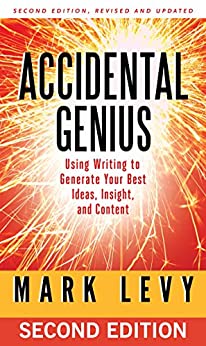
The process of writing for publication (books, articles, etc.), can be daunting, frustrating, and confusing. That can even be the case if you have already been published.
This post presents a framework for navigating the process, providing a big picture, holistic view with plenty of room for details. It is a follow-up to my recent post “43 Eclectic Resources on Writing/Publishing/Creativity,” and my September 29 virtual workshop for the DC-based group EDEN, about writing for publication. Wherever you are in the writing for publication journey, you are likely to find it to be helpful, useful, and encouraging.
Determine Your Goals
Precisely because this journey can be so difficult, it’s important to be clear about why you want your writing to be published. For instance, you may have multiple and overlapping goals, such as publishing professional articles, but also fiction, or poetry. There are a variety of other reasons you might want to be published, such as becoming known as a thought leader in a particular area of expertise; or furthering your career by the additional exposure. You may see your writing as part of a parallel career, or an encore career. It might be part of a passion project that is particularly meaningful to you. And don’t overlook writing for fun, enjoyment, and fulfillment.
Develop Your Craft/Creativity
Writing for publication requires maintaining high quality as a baseline. Publishers are inundated with material, so yours has to stand out. Fortunately, there are many ways you can continually develop as a writer, such as joining writing workshops, retreats, classes (including those at organizations for writers, and universities/community colleges, online and in person), going to writing-related conferences, and finding a variety of resources at libraries of all types (public, academic, and corporate).
Many writers find notebooks and journals to be particularly helpful, as shown by the popularity of Ryder Carroll’s The Bullet Journal Method. Spend some time each week on research, including reading about the craft/experience of writing (see the resources section below). Check into helpful techniques such as freewriting/automatic writing (learn more in Mark Levy’s Accidental Genius: Using Writing to Generate Your Best Ideas, Insight, and Content) and “morning pages,” in Julia Cameron’s classic The Artist’s Way.
Consider Your Options
Learn about publications/publishers and how to approach them; what are the specific requirements, and are you a good fit? Plan for an organized, systematic, and intentional approach, with appropriate due diligence.
Your options for articles include writing in general interest and niche publications, including scholarly journals. For nonfiction and/or fiction books, there are many types of publishers, such as academic/university, conventional trade publishers, hybrid, self-publishing, and non-traditional/niche publishers.
Commit for the Long-Term
Since this can be a long, and ongoing process, consider the role of psychological factors such as grit, resilience, positivity, and persistence. Even the most experienced writers are likely to meet with periodic rejection. This requires perseverance, but also patience. You have to accept feedback, whether you agree with it or not. It pays to keep good writing habits, such as time management and schedules for when to write, since this activity may have to fit around your work schedule and/or other life commitments.
Many writers find it helpful to search online for regular motivation and inspiration, which can often be found on social media. Develop and refine your intellectual curiosity, especially reading widely in a variety of genres. Keep a high level of enthusiasm and maintain your interpersonal skills; working productively with others is crucial. There is the added consideration of your physical setup (desk, computer, smartphone, tablet, maintenance, upgrades, and so on).
Consult Your Resources
There are numerous online and print resources to become a better writer, and increase your chances of being published. Here is a short list of five, from the ’43 Eclectic Resources…’ post above, that you should find particularly helpful, no matter what genre you would like to write:
AWP/Association of Writers & Writing Programs
Maintain a Support Network
You can certainly go through this process alone, but it helps to cultivate a support system, which can include networking with fellow writers, teachers, coaches, and mentors. Who are your role models? They don’t have to be people you personally know, or even people who are alive. Consider joining reading groups, and perhaps groups of fellow writers who will critique each other’s work. You may also want to have writing partners, or even collaborate with co-authors. Many of these options are available via writing organizations, such as the above-mentioned AWP, and The Writer’s Center in Bethesda, Maryland.
Create an Action Plan
In order to create and sustain momentum, it is a good idea to create a plan now, based on the material above, covering the next 18 months. Feel free to modify, but here is a place to start:
- Identify one or two writing-related goals
- Develop a plan to learn about and target selected publishers/publications
- Investigate/sign up for one or more classes, workshops, retreats, writing groups, or conferences
- Consult selected social media posts, blogs, podcasts, videos, and books for inspiration and to keep learning about your craft
- Track your progress and adjust your goals as needed
Remember that these activities are ongoing and never-ending, and they are not always linear. One final reminder: Enjoy the process!
